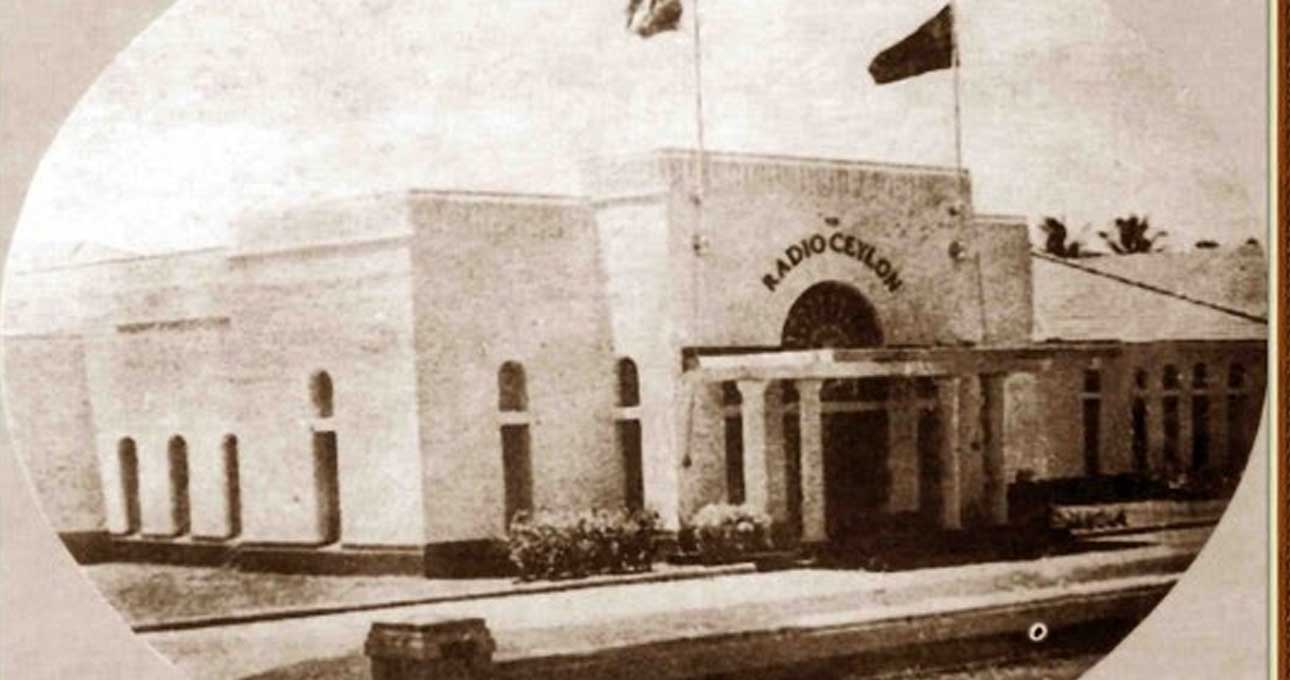Bauddhaloka Mawatha is a wide, tree-lined avenue in Colombo in Sri Lanka. It runs from Galle Road in the west towards Sri Jayewardenepura Kotte, the administrative capital of Sri Lanka, in the east. The avenue runs past a few university playgrounds and several colonial-era buildings, now occupied by embassies and ministries in a leafy part of Colombo 7. The cluster of buildings across the side of the road leading to the office is the Sri Lankan Broadcasting Corporation (SLBC).
The foundation stone at the entrance confirms the famous Radio Ceylon. For a generation of South Asians, this radio station quite literally brought music (Sinhala, Western and Hindi pop) into our lives. Indeed, it was a must-visit place high on our personal bucket list. It began in 1925, just three years after the launch of BBC, making it the oldest radio station in South Asia. By 1949 given the increased importance of radio services, the station was vested under the Department of Broadcasting of the Government of Ceylon and renamed Radio Ceylon.
Radio SEAC was transferred to the government of the newly independent Ceylon in March 1949. Radio Ceylon formally started operations in December 1949.Its operations were split between a National Service (broadcasting predominantly on medium wave) and the Commercial Service (utilizing the powerful short wave transmitters). It was the latter service that was to become all the rage. Broadcasting in English, Radio Ceylon’s range of programmes covered Western Music from pop, classical, country and western to jazz and big-band swing, as well as a range of quiz shows. Extraordinarily for the time, it even aired live concerts, some from Colombo’s leading venues such as the Galle Face Hotel. Global greats who performed live on Radio Ceylon included Jack Teagarden, the Golden Gate Quartet, Dave Brubeck, Duke Ellington and Eric Jupp.
The 1950s were not easy times. The euphoria of Independence had given way to grim realities. The Second World War and its aftermath had drained the nation of resources. Partition had caused untold damage, economic as well as psychological. Life was difficult. Public transportation was more or less non-existent; except for the rich and senior government officials, very few owned cars or other personal transportation. Telephones were available only to the most privileged. The waiting list for a telephone connection extended to multiple years. The main entertainment and leisure, at least for the then younger generation in Sri Lanka was to listen the Radio.
There was, of course, no television. Those were the days of the Radio Ceylon monopoly. One could pick up some Western music on short wave (with all its static) from the BBC, and have the luxury of a one-hour broadcast of the Western music request programme.
In 1967, the Department of Broadcasting was transformed into its present statutory form of a state corporation by the Ceylon Broadcasting Corporation Act. No 37 of 1966 of the Parliament of Ceylon, thereby assuring increased autonomy and flexibility in the operations of the new organization.
The organization acquired its present name, the Sri Lanka Broadcasting Corporation, when Ceylon became the Republic of Sri Lanka in 1972.
In the 1990’s the SLBC lost its monopoly due to the many private broadcasters presently operating in the Island. It did not lose the dignity and the value of providing Quality unbiased knowledge and entertainment to listeners.
Creating more quality entertainment Information and educational programmes, bridging the gap between the common listener and the economy is a good sign of progress and the economic development of the Island.
Still the SLBC should capture the young teenage group with much more interesting educational programmes, especially those awaiting examination results.
The original mission of Radio Ceylon was:
‘Carrying out radio broadcasting in such a manner as to improve the quality of life of the listeners by way of developing their skills, knowledge and attitudes relating to various fields such as economic, social, cultural, ethical, educational and entertainment.’
Radio Ceylon, the pioneer broadcaster in South East Asia which started broadcasting on Short Wave (SW) is now venturing its public services in to the digital Era with Digital Broadcasting via the Internet across the globe.

By Indira Nawagmuwa

